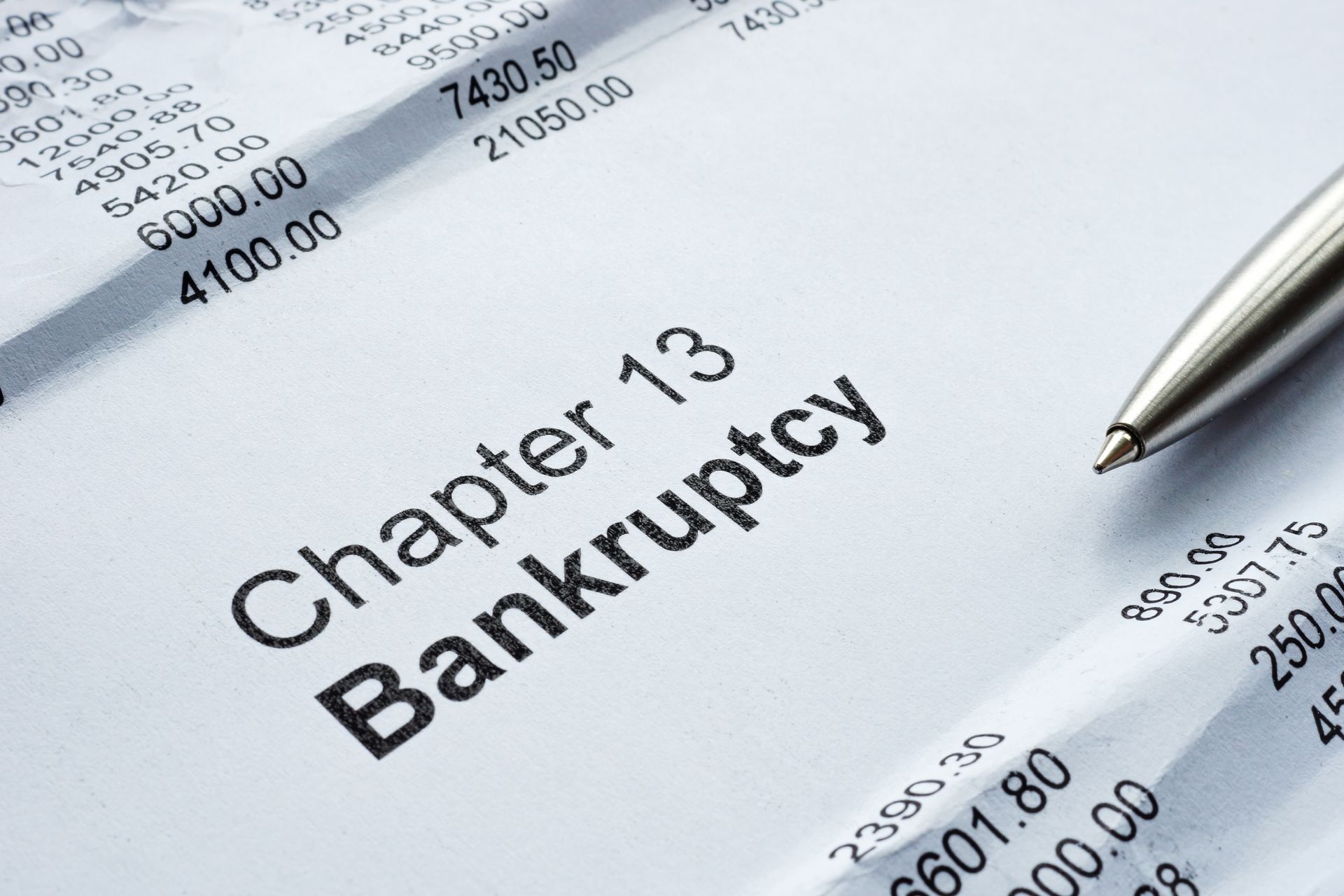Filing Chapter 7 Bankruptcy Vs. Chapter 13 Bankruptcy
Filing Chapter 7 Bankruptcy Vs. Chapter 13 Bankruptcy
Being in debt is a stressful and overwhelming experience. If you're struggling to keep up with your debt payments, you may be wondering if filing for bankruptcy is the right option for you. The two most common types of bankruptcy for individuals are Chapter 7 bankruptcy and Chapter 13 bankruptcy. In this blog post, we'll explain the key differences between these two types of bankruptcy and help you decide which one is the best fit for your unique situation.
Chapter 7 Bankruptcy
Chapter 7 bankruptcy is also known as "liquidation" bankruptcy. This means that a court-appointed trustee will sell off some of your assets to pay off your creditors. However, in most cases, individuals who file for Chapter 7 bankruptcy have few assets to sell, meaning that they can discharge most of their unsecured debts (such as credit card debt and medical bills) without losing property. Chapter 7 bankruptcy typically takes less time to complete compared to Chapter 13 bankruptcy, usually about 3-6 months.
Who should file for Chapter 7 bankruptcy?
Individuals who have little to no disposable income and who want to discharge most of their unsecured debts should consider filing for Chapter 7 bankruptcy. However, if you own significant assets, such as a home or a car, you may want to consider filing for Chapter 13 bankruptcy instead.
Chapter 13 Bankruptcy
Chapter 13 bankruptcy is also known as a "reorganization" bankruptcy. Under Chapter 13, individuals create a plan to pay back their debts over a period of 3-5 years. Typically, individuals who file for Chapter 13 bankruptcy have a regular income and are able to make monthly payments towards their debts while still preserving their assets. Chapter 13 bankruptcy can also be used to catch up on missed payments on secured debts such as mortgages or car loans.
Who should file for Chapter 13 bankruptcy?
Individuals who have a regular income and who want to keep their assets while catching up on missed payments may benefit from filing for Chapter 13 bankruptcy. Chapter 13 may also be a good fit for individuals who do not qualify for Chapter 7 due to their income or assets.
At J. Singer Law Group, PLLC, we can assist New York residents with bankruptcy matters. Whether you're considering filing for Chapter 7 or Chapter 13 bankruptcy, our experienced attorneys can help guide you through every step of the process. We can help you determine which type of bankruptcy is right for you and create a personalized plan to get you on the road to a debt-free future.
Bankruptcy may be a tough decision to make, however, with the right guidance, you can achieve a fresh financial start. At J. Singer Law Group, PLLC, we understand that everyone's financial situation is unique. That's why we provide our clients with personalized solutions based on their individual needs. Whether you're considering filing for chapter 7 or chapter 13 bankruptcy, we can help you get the relief you need. If you're a resident of New York and are struggling financially, consider reaching out to us today. We're here to help you every step of the way.











